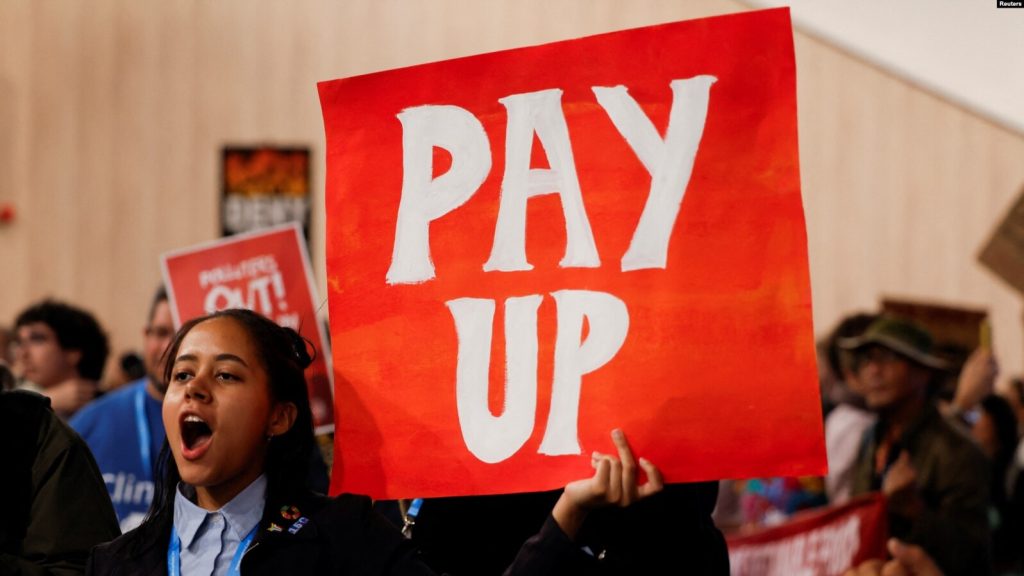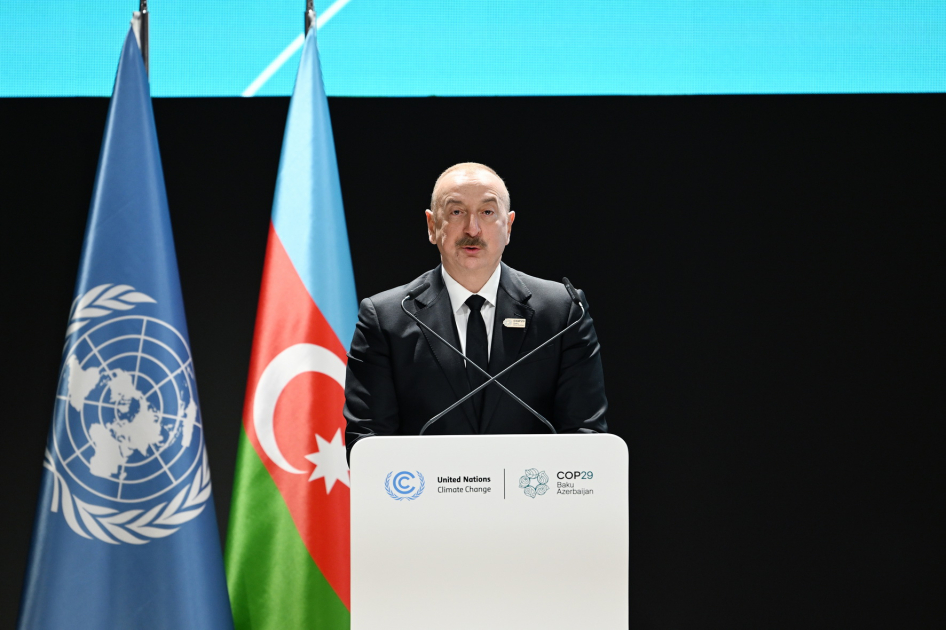
COP29 Baku negotiations extend
Today, November 22, was scheduled to mark the conclusion of the 29th session of the Conference of the Parties to the UN Framework Convention on Climate Change (COP29), held in Baku. However, reports surfaced yesterday suggesting that the event might be extended by one or two days.
This information was shared by the pro-government outlet 1news.az, citing its own sources.
According to insiders, the potential extension depends on the progress and outcomes of the negotiations, as well as the likelihood of reaching agreements. If no agreements are achieved, COP29 in Baku could be extended for an additional day or two.
- Tensions between Israel and Turkey spill over to Azerbaijan again
- Generation AI: Armenia’s experimental education project
- EU Parliament draft resolution calls for sanctions on top Georgian officials
In the past, there have been instances during previous Conferences where sessions were extended until midnight the following day.
However, no official information has been released on this matter yet, as everything will depend on the progress of the negotiations.
“Now is time to lay all cards on table”

On November 21, UN Secretary-General António Guterres addressed the COP29 climate conference in Baku, stressing the need for a decisive push to finalize an agreement. He cautioned that “bankruptcy is not an option” in the ongoing negotiations.
Azerbaijan’s bureau of Radio Free Europe/Radio Liberty, citing Reuters, reported that tensions and disagreements have already begun to emerge at the summit. The proposal for a new global financial target reflects two competing perspectives.
The primary goal of COP29 is to set a financial target for wealthier developed nations to provide funding to poorer countries in their fight against climate change. However, progress on these discussions has been sluggish, with the final draft of the negotiation text released just 48 hours before the summit’s scheduled conclusion.
“The text we have now… is unbalanced, ineffective, and unacceptable,” stated EU Climate Commissioner Wopke Hoekstra, calling on Azerbaijan to show stronger leadership in its role as COP29 president.
Economists participating in last week’s talks emphasized that developing nations will need at least $1 trillion to combat climate change by the end of the decade. Meanwhile, some developed countries continue to advocate for maintaining a financial target between $300 billion and $500 billion, as in previous agreements.
The 10-page document, published on November 21, highlights the conflicting positions of developed and developing nations in the lead-up to the event.
One position suggests that allocated funds, whether in the form of grants or equivalent contributions, should not be formally included in the target program for mutual assistance to developing countries. This stance primarily concerns major potential donors, such as China.
The other position aligns more closely with the perspective of wealthy nations, advocating for a broader range of financing methods to achieve the final annual target, rather than relying solely on grants from developed countries.
However, neither proposal specifies an annual investment target for the recipient nations, leaving this figure marked with an “X.”
Azerbaijan’s chief negotiator at COP29, Yalchin Rafiev, emphasized that “now is the time to lay all the cards on the table.”
Some negotiators noted that the proposals presented had not been promised at last year’s summit in Dubai, where the commitment to phase out fossil fuels was hailed as a major milestone.
The Paris Agreement, signed in 2015, aimed to limit global warming to 1.5-2 degrees Celsius by 2030. Yet, this year, global temperatures have already risen by 1.3 degrees Celsius.
“EU and US reluctant to shoulder significant financial burden”
The pro-government agency Report previously cited a diplomatic source familiar with the discussions, noting that the negotiations are unfolding in a tense atmosphere.
According to the source, the European Union (EU) and the United States are reluctant to take on a significant financial burden. “The EU recognizes that this must be addressed now, as it will likely become impossible if Donald Trump returns to power in the United States,” the report stated.
The collective West is reportedly working to involve developing countries with substantial financial resources, including China, Qatar, and others. While South Korea, Singapore, and, to some extent, the UAE have expressed readiness to participate, China and Saudi Arabia remain firmly opposed.
China is said to be applying pressure on the process and on Western countries through the China+G77 group.
The unnamed source noted that the US strategy at all COP negotiations has been to avoid taking on commitments and to protect the American oil and gas industry. The current U.S. negotiating team has been acting with significant uncertainty following Donald Trump’s election as president.
Saudi Arabia, Kuwait, Bolivia, and other countries in this group oppose the fossil fuel transition document adopted last year in the UAE and are blocking its reintroduction to the agenda.
Azerbaijan is acting as a mediator and leading the negotiation process, but the geopolitical polarization remains intense. Achieving success in setting a new financial target would be a victory for the entire world. Conversely, failure to do so would mark a global setback for climate action and the planet as a whole.
COP29 Baku negotiations extend


